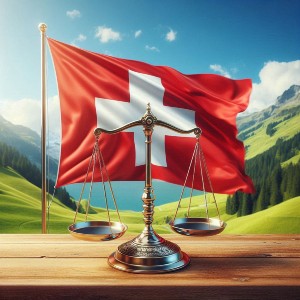In international arbitration, interim measures, also known as “provisional” or “conservatory” measures, are temporary remedies issued by an arbitral tribunal to protect parties’ rights, preserve assets or maintain the status quo until a final award is issued. They are comparable to injunctions in litigation but tailored for the arbitration process. Examples of interim measures include, inter […]
News
Sovereign Immunity in Switzerland
The doctrine of sovereign immunity can be traced back to early international law theories. Traditionally, sovereign immunity was considered absolute, meaning that states could not be sued under any circumstances. However, as international relations and state involvement in commerce expanded, many countries, including Switzerland, adopted a restrictive approach. This distinction allows legal actions against states […]
Arbitration Crowdfunding
Arbitration has long been a preferred mechanism for resolving international commercial disputes. However, its cost often presents a barrier to access to justice. In response, crowdfunding has emerged as a potential solution, allowing claimants to raise funds through online platforms. This note explores the use of crowdfunding in arbitration, its ethical and practical challenges, and […]
Mass Momentum: What’s Next for Mass Arbitration?
In recent years, mass arbitration has emerged as a novel and often controversial tool within United States (U.S.) domestic arbitration. These proceedings occur when a large number of similar individual claims are filed against the same respondent, often a large corporation, creating a high-stakes environment where respondents are forced to either pay substantial administrative fees […]
Extending Arbitration Agreements to Third Parties: Principles and Challenges in English Law
The extension of arbitration agreements to third parties is a complex but rigid area of English law. In light of the ever-growing prevalence of intricate multi-party and multi-jurisdiction disputes, courts and arbitral tribunals have found themselves balancing principles of privity of contract with public policy to determine when, why, and how arbitration agreements should be […]
Shareholder Claims for Reflective Loss in Investor-State Arbitration: An Overview
Reflective losses are indirect losses, such as a decrease in the value of the shares, suffered by shareholders as a result of harm to the company in which their shares are held.[1] Reflective losses differ from direct losses suffered by shareholders, which may occur through the seizure of shares or barriers to shareholder attendance of […]
Cartels and International Arbitration
Cartels disrupt market integrity and harm economic players. As companies worldwide face increasing risks from the anti-competitive practices of cartels, international arbitration is emerging as a critical tool for resolving these disputes. Understanding Cartels: The Basics A cartel is an agreement or coordinated action between two or more competitors, typically entities offering similar goods or […]
International Arbitration in Denmark
Denmark offers a robust and internationally aligned framework for arbitration, making it a preferred choice for resolving cross-border disputes. Governed by the Danish Arbitration Act 2005 (the “DAA”), based on the UNCITRAL Model Law, Denmark ensures adherence to global standards of fairness, flexibility, and efficiency. Its legal framework supports both domestic and international arbitration, guaranteeing […]
Which Foreign Investors Could Sue Trump’s United States in Arbitration?
Since taking office for the second time, President Trump has unleashed a torrent of executive orders aimed at reshaping America’s legal and political landscape — from immigration and climate change to trade, civil rights, energy policy, and tariffs.[1] His unpredictable approach to governance has sparked domestic and international concerns, particularly among foreign investors who may […]









